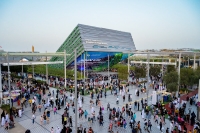
The Saudi Pavilion at Expo 2020 Dubai served as the main venue for the Kingdom of Saudi Arabia 's participation in 'Expo 2020 Dubai', held in the United Arab Emirates from October 1, 2021, to March 31, 2022. The pavilion encapsulated the Kingdom's ambitions and future visions, alongside its history, heritage, and abundant opportunities. It also showcased stories of beginnings, as well as the journey of development and progress. Platinum certificate for the Saudi Pavilion at ...
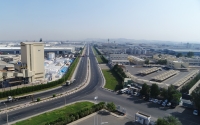
Cities built with the aim of providing and developing industrial lands in the Kingdom pf Saudi Arabia to establish and operate factories that develop infrastructure and services, such as electricity and water in order to meet the requirements of industrialists and investors, and prepare them for an investment environment. The Kingdom offers incentives for factories in industrial cities , such as customs exemptions and a symbolic rental value. Industrial cities in the Kingdom cover about 980 mil...
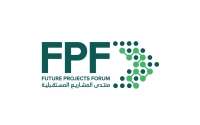
Future Projects Forum is an annual forum and one of the initiatives of the Saudi Contractor Authority. It serves as a platform for showcasing future projects. The first edition was organized by the authority in 2019. The estimated value of the projects in the five editions of the annual forum reached around SAR4 trillion. The forum aims to bring together project owners from government and private sectors, contractors, and interested parties in one place and at one time to create new opportuniti...
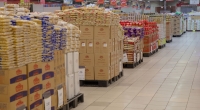
Consumer Goods in the Kingdom of Saudi Arabia are final goods and services that benefit consumers and satisfy their needs according to their purchasing powers. This type of commodity is classified according to the use of the production materials from which the commodities are made and includes food, non-food, and service commodities. The second type is the intermediate consumption goods, including feed, live animals, and construction goods. Performance of consumer goods in Saudi Arabia Regulati...
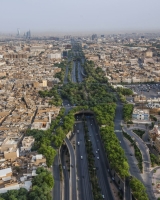
Sustainable Development in the Kingdom of Saudi Arabia is a system of global goals aimed at eradicating poverty, protecting the environment and climate, and ensuring peace and prosperity globally. Saudi Arabia is working to achieve these goals by 2030, in collaboration with the United Nations (UN) and national partners, following the UN's joint strategic framework. Saudi Arabia has placed sustainable development at the forefront of national priorities by integrating it into Saudi Vision 20...
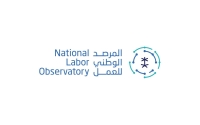
The National Labor Observatory, a primary source of labor market data and insights in the Kingdom of Saudi Arabia, operates under the Human Resources Development Fund (HADAF). It was established on June 28, 2012, and its main headquarters is located in Riyadh City . The National Labor Observatory’s strategy The National Labor Observatory reactivated its role and redefined its vision and strategic objectives in alignment with the labor market strategy approved by the Council of Ministers in 20...
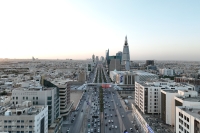
Economic Development in the Kingdom of Saudi Arabia began in 1970 with the approval of the first five-year development plans during the reign of King Faisal Bin Abdulaziz Al Saud . This was preceded by earlier planning efforts, such as the preparation of the first official state budget in 1934. Saudi Vision 2030 , launched in 2016, represents the most recent model of developmental planning, redefining the concept of development within new frameworks. Its strategy is built on three fundamental p...
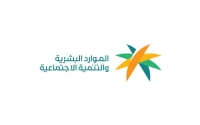
The Saudi Labor Market Strategy is a national strategy focused on regulating the labor market and its related entities in the Kingdom of Saudi Arabia . It was issued by the Ministry of Human Resources and Social Development and was approved by a decision of the Council of Ministers on December 8, 2020. The Saudi Labor Market Strategy is being implemented through twenty-five labor market initiatives. The strategy aims to create an attractive work environment for both local and global talents, wh...
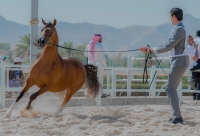
Yes, the Kingdom of Saudi Arabia imports horses. The importation is conducted by individuals or private entities for racing and breeding purposes. Ministry of Environment, Water, and Agriculture issues import licenses for horses. Riyadh Equestrian Club is responsible for setting import standards according to specific regulations for each category. Imported horses are divided into three categories. The first category includes horses imported for racing, which must be at least two years old, with...
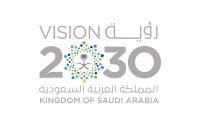
The Care Economy in the Kingdom of Saudi Arabia comprises various care services provided within the Kingdom. It includes markets for services and goods, employment, investments, infrastructure, government spending, final consumption by both the private and non-profit sectors, funds paid by consumers for the care of others in sectors such as health, social care, education, unpaid home care, domestic labor, and volunteering. Workers in the care economy in Saudi Arabia The care economy is a promis...
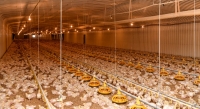
Poultry Farming in the Kingdom of Saudi Arabia is one of the activities supported by the Saudi Ministry of Environment, Water, and Agriculture . The Kingdom ranks third globally in the consumption of poultry meat and products and is one of the main producers of poultry in the Middle East and Africa. The country produces about 1.3 billion birds and 5.4 billion eggs annually. According to the Statistical Yearbook 2022, the Kingdom's self-sufficiency rate in broiler production reached sixty-e...
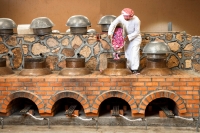
Taif rose water is produced through a process of cooking and distillation. In each batch, approximately 13,000 rose petals are placed in a special pot. Heat is applied underneath the pot, causing the steam generated from the cooking to rise and pass through a pipe in the pot's lid. The steam then enters a container filled with water, where it cools and condenses, forming droplets that are collected in a vessel called ' al-Talqieh '. Rose water is extracted after adding a certain ...